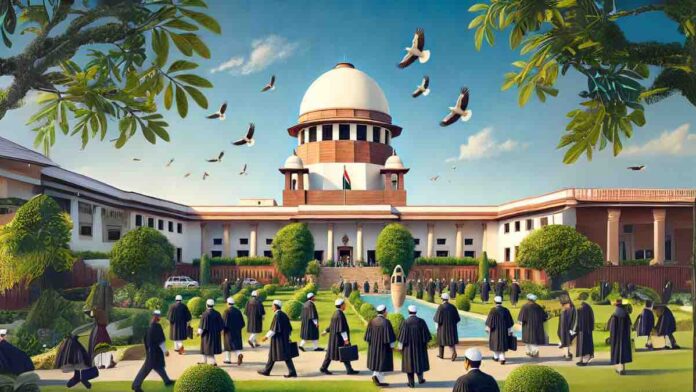The Supreme Court of India has clarified a crucial aspect of procedural fairness in disciplinary proceedings, holding that a preliminary inquiry report must be furnished to a charged employee if the inquiry officer relies on it to arrive at their findings. While laying down this principle, a bench of Justice Dipankar Datta and Justice Prashant
To Read More Please Subscribe to VIP Membership for Unlimited Access to All the Articles, Download Available Copies of Judgments/Order, Acess to Central/State Bare Acts, Advertisement Free Content, Access to More than 4000 Legal Drafts( Readymade Editable Formats of Suits, Petitions, Writs, Legal Notices, Divorce Petitions, 138 Notices, Bail Applications etc.) in Hindi and English.




